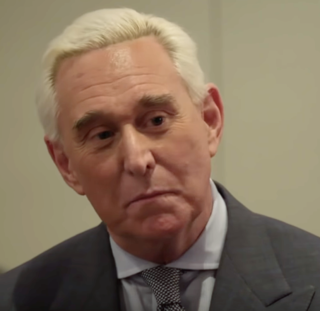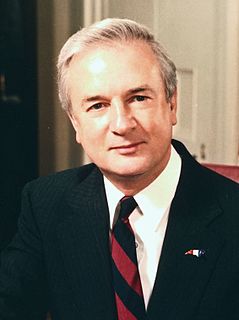A Quote by Roger Stone
In 2000, Trump could have won the Reform Party nomination. I chaired his presidential exploratory committee.
Quote Topics
Related Quotes
Here you have the Republican Party, and they had, what, 16, 15 candidates seek the Republican nomination? And Donald Trump won it. And they have been enraged actually since day one when Trump announced, and his statement did not result in a Trump implosion, and then future Trump statements and appearances did not result in a Trump implosion. But the candidates that the Republican Party...They thought they had the best presidential field ever, and they hated and resented Trump for that.
But might not his [the president's] nomination be overruled? I grant it might, yet this could only be to make place for another nomination by himself. The person ultimately appointed must be object of his preference, though perhaps not in the first degree. It is also not very probable that his nomination would often be overruled.
That Republicans now control the Senate means, of course, that they control the confirmation process. Their majority enables them to stop an unacceptable nomination at various points: They can deny the nominee a committee hearing; they can vote the person down in committee; they can refuse to schedule a vote on a nomination sent to the floor; and the full Senate can vote to reject the nomination. The Republicans' majority status also strengthens their negotiating position with the White House, making it more likely that a mutually acceptable candidate will be chosen for a given seat.
[Donald] Trump wanted the nomination, and all these other Republicans and their supporters didn't want Trump to have the nomination. So who became the villains? What Trump wanted became the story. "Will he get it? Will Trump get to 1,237?" Did not Ted Cruz become a villain in the middle of this by virtue of trying to stop the hero by getting delegates in all of the state conventions?
Most of Trump's support is not the conservative base. It's all over the spectrum. He's got support from women, Hispanics, blue-collar Democrats, the old Reagan Democrats. The demographic support that Trump has is what the Republican Party claims it wants. Meanwhile, the Republican Party is running around saying they want to win the nomination without the conservative base, without the pro-lifers, without the social issues crowd. Well, that's Trump.





























